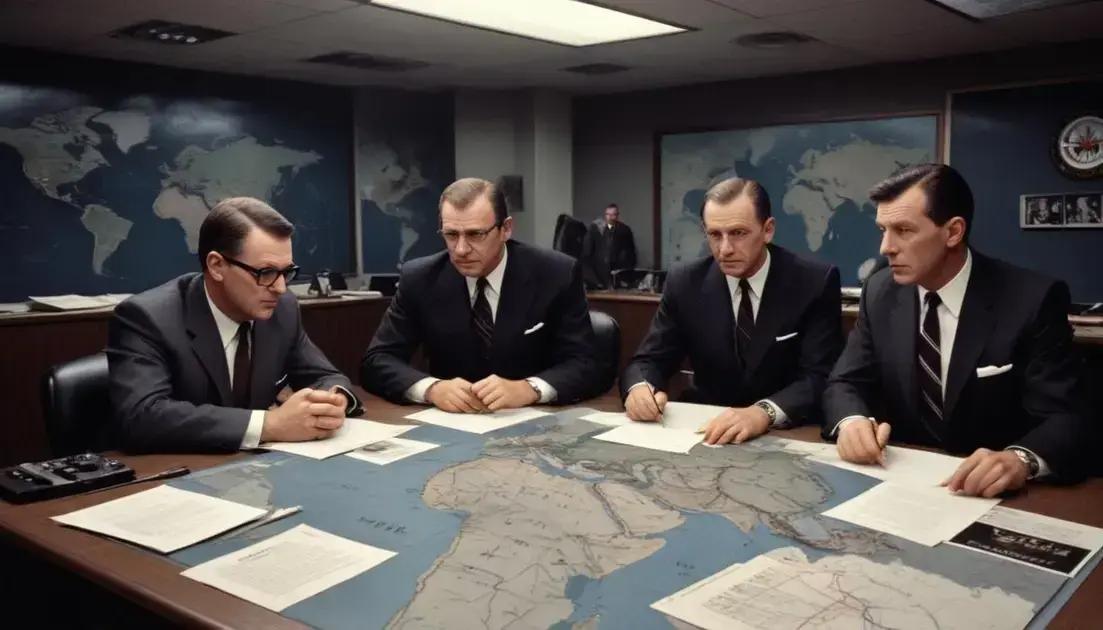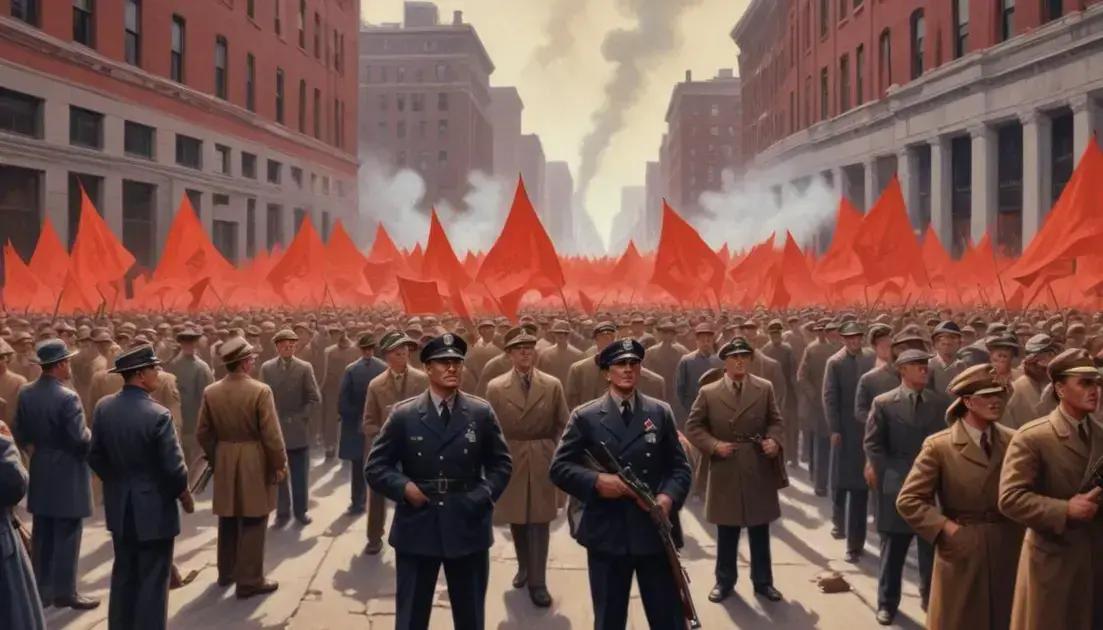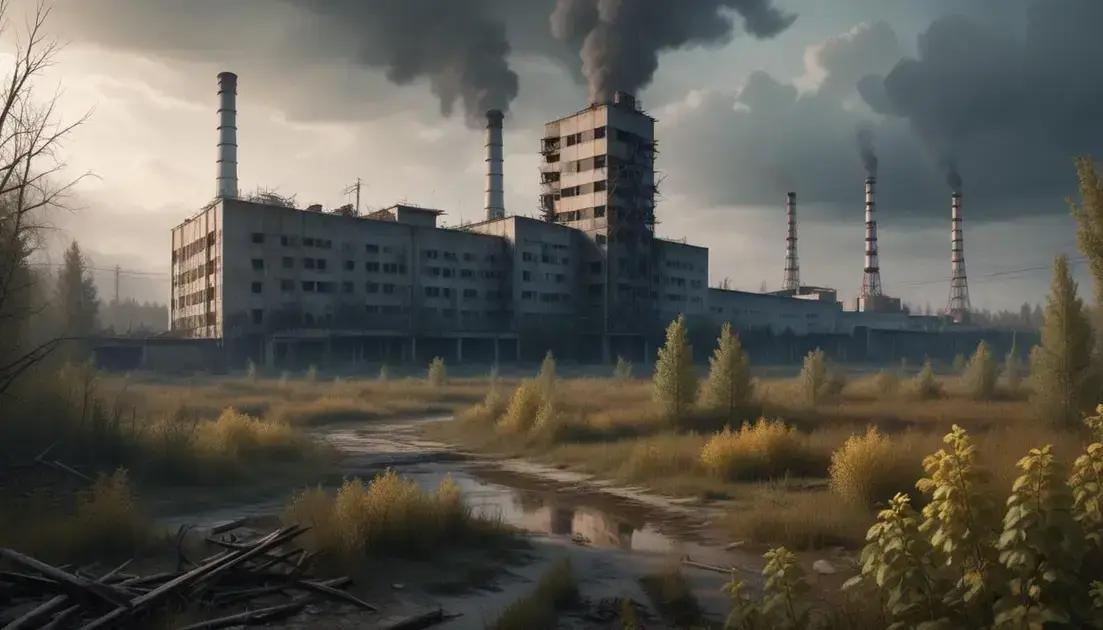
CIA: Secret Operations and Coups During the Cold War
The CIA has been involved in numerous covert operations and coups that have significantly impacted global politics, particularly during the Cold War. Through espionage techniques, propaganda, and support for military takeovers, the CIA aimed to counter perceived threats from communism. These interventions often led to long-lasting instability, undermining democratic institutions and fostering resentment toward U.S. foreign policy. Understanding these actions and their repercussions sheds light on contemporary international relations and their historical context.
CIA actions during the Cold War had lasting impacts on global politics. What were these secret operations and how did they shape our world?
Key operations by the CIA
The CIA has been involved in numerous covert operations throughout its history. These operations aimed to influence outcomes in various countries, especially during the Cold War. For example, in 1953, the CIA helped to overthrow the Iranian government to protect American interests. This operation showed how powerful covert actions could be.
Notable CIA Operations
Another significant operation was in Guatemala in 1954. The CIA supported forces to remove the democratically elected president. This was done to combat the spread of communism in Central America. Such actions had a lasting impact on the region.
The CIA also played a role in the Bay of Pigs invasion in 1961. This was an attempt to overthrow Fidel Castro in Cuba. While the operation failed, it highlighted the lengths to which the U.S. would go to fight communism.
Techniques Used
The CIA often used propaganda, misinformation, and even bribery to achieve its goals. These techniques helped to sway public opinion and create favorable conditions for U.S. interventions. The agency also relied on spies to gather intelligence about other nations.
In many of these operations, the CIA worked closely with local groups. This partnership often made it easier to influence political outcomes without revealing direct U.S. involvement. However, these maneuvers also led to controversy and debate about their ethics and long-term effects.
Throughout the years, the CIA has shaped global politics in many ways. Its operations demonstrate the complex interplay between secrecy, power, and international relations. The actions taken during the Cold War still echo in today’s world, affecting how nations interact.
Impact of propaganda
Propaganda played a major role in the CIA’s efforts during the Cold War. This tool was used to shape opinions and influence people’s beliefs. It wasn’t just about spreading information; it was about creating a narrative. The aim was to support U.S. interests while undermining enemies.
For instance, the CIA often produced films and radio broadcasts. These media aimed to promote American values and challenge communist ideologies. They showed the benefits of democracy and capitalism. Such messages were designed to resonate with the public.
Methods of Propaganda
One common method was to exaggerate the threats posed by communism. This tactic helped rally support for U.S. actions abroad. By painting a dire picture, the CIA could justify interventions.
The agency also used art and literature. They funded writers and artists to produce works that favored their cause. These creations helped spread anti-communist ideas across cultures.
Long-term Effects
The impact of these propaganda efforts is still felt today. Many people in different parts of the world view the U.S. and its policies through a specific lens. This legacy shapes modern attitudes and international relations.
While propaganda can be a powerful tool for influence, it raises ethical questions. Misinformation can lead to misunderstandings and conflict. So, it’s essential to consider how propaganda has shaped not just perceptions but also politics globally.
Famous coups
The CIA has been linked to many famous coups around the world. These events often changed the course of nations. One notable coup was in Chile in 1973. The CIA supported a plan to overthrow President Salvador Allende. They aimed to replace him with General Augusto Pinochet.
This coup led to years of dictatorship in Chile. It sparked debates about U.S. involvement in foreign governments. Many questioned whether such actions were right or necessary.
Other Notable Coups
Another famous event was in Iran in 1953. The CIA helped remove Prime Minister Mohammad Mossadegh. They feared he was becoming too friendly with the Soviets. The coup led to the return of the Shah, who ruled with an iron fist.
In Guatemala, the CIA assisted in overthrowing President Jacobo Árbenz in 1954. His land reform policies upset big American fruit companies. Through misinformation and local support, the CIA executed this coup without direct military intervention.
The Impact of Coups
These coups often led to lasting instability. Countries faced years of conflict and dictatorship. The consequences affected not just politics but daily life for citizens.
While the CIA sought to protect American interests, the aftermath often questioned their tactics. These coups shaped U.S. foreign policy and left a mixed legacy. The debate continues over whether such actions were justified or morally wrong.
Espionage techniques
Espionage techniques are crucial tools for the CIA. These methods allow agents to gather important intelligence. Common techniques include surveillance and infiltration. Surveillance means watching people or places secretly. This helps agents gather valuable information without being seen.
Infiltration is when agents go undercover. They pretend to be someone else to gain trust. By doing this, they can gather sensitive data. Sometimes, they build relationships with locals to get insights.
Use of Technology
The CIA also uses technology for espionage. High-tech gadgets help agents in the field. They may use cameras or listening devices to collect evidence. These tools make it easier to monitor targets.
Cyber espionage is becoming more common. The CIA often hacks into systems to steal information. This can include accessing emails or databases without detection.
Recruiting Informants
Another technique is recruiting informants. The CIA looks for people with valuable information. These informants can provide inside knowledge about politics and security. In return, they may receive money or protection.
Using these techniques, the CIA gathers information to protect U.S. interests. Each technique comes with risks. If caught, agents and informants can face serious consequences. Still, these methods remain essential in the world of espionage.
Long-term effects
The long-term effects of CIA operations are significant and complex. Many interventions have altered the political landscape of countries. For example, the overthrow of governments often led to years of instability. People in affected nations faced challenges, such as poverty and conflict.
In some cases, new leaders backed by the CIA were not democratic. They often ruled with an iron fist. This created resentment among citizens and sparked future conflicts. Many regions experienced civil wars partly due to U.S.-supported coups.
Changes in Governance
Countries that saw CIA involvement sometimes struggled with governance. Democratic institutions may have been damaged or weakened. This can lead to a lack of trust in government, which lasts for generations.
Moreover, the tactics used by the CIA can affect how other nations view the U.S. Many see America as an outside force that interferes in local affairs. This creates tension and resentment, impacting international relationships.
Cultural Connections
The CIA’s actions also influence cultural perceptions. Propaganda can shape how people view the West. Misinformation may lead to stereotypes and divisions. Educational policies and cultural exchanges can be strained due to these views.
In conclusion, the long-term effects of CIA operations are profound. They influence not just politics but also everyday lives and cultural relationships. Recognizing these impacts helps us understand current international dynamics.
Conclusion
In conclusion, understanding the CIA’s secret operations, the foreign coups, and the methods of espionage provides valuable insights into world history. The impact of these actions continues to shape politics, cultures, and relationships even today. Through propaganda and covert techniques, the CIA has influenced many nations, but these actions often come with serious long-term consequences.
It’s important to reflect on how these interventions affect people’s lives and global dynamics. While some may argue that such operations are necessary for national security, others see the harm they cause. Ultimately, examining these complex issues helps us foster a deeper understanding of modern international relations and the legacies of the past.


